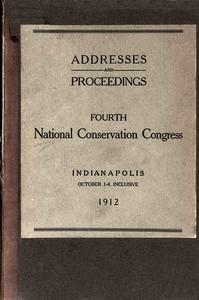|
|
Read this ebook for free! No credit card needed, absolutely nothing to pay.Words: 85375 in 53 pages
This is an ebook sharing website. You can read the uploaded ebooks for free here. No credit cards needed, nothing to pay. If you want to own a digital copy of the ebook, or want to read offline with your favorite ebook-reader, then you can choose to buy and download the ebook.

: Princess Sukey: The story of a pigeon and her human friends by Saunders Marshall - Animals Juvenile fiction; Pigeons Juvenile fiction@FreeBooksThu 08 Jun, 2023 Cambridge: MACMILLAN AND CO. AND 23, HENRIETTA STREET, COVENT GARDEN, London. 1861. Cambridge: PRINTED BY C. J. CLAY, M.A. AT THE UNIVERSITY PRESS TO MR. AND MRS ROBERT BROWNING My first recollections of Rome date from too long ago, and from too early an age, for me to be able to recall with ease the impression caused by its first aspect. It is hard indeed for any one at any time to judge of Rome fairly. Whatever may be the object of our pilgrimage, we Roman travellers are all under some guise or other pilgrims to the Eternal City, and gaze around us with something of a pilgrim's reverence for the shrine of his worship. The ground we tread on is enchanted ground, we breathe a charmed air, and are spellbound with a strange witchery. A kind of glamour steals over us, a thousand memories rise up and chase each other. Heroes and martyrs, sages and saints and sinners, consuls and popes and emperors, people the weird pageant which to our mind's eye hovers ever mistily amidst the scenes around us. Here above all places in God's earth it is hard to forget the past and think only of the present. This, however, is what I now want to do. Laying aside all memory of what Rome has been, I would again describe what Rome is now. And thus, in my solitary wanderings about the city, I have often sought to picture to myself what would be the feelings of a stranger who, caring nothing and knowing nothing of the past, should enter Rome with only that listless curiosity which all travellers feel perforce, when for the first time they approach a great capital. Let me fancy that such a traveller--a very Gallio among travellers--is standing by my side. Let me try and tell him what, under my mentorship, he would mark and see. It shall not be on a bright, cloudless day that we enter Rome. To our northern eyes the rich Italian sun-light gives to everything, even to ruins and rags and squalor, a deceptive grandeur, and a beauty which is not due. No, the day shall be such a day as that on which I write; such a day in fact as the days are oftener than not at this dead season of the year, sunless and damp and dull. The sky above is covered with colourless, unbroken clouds, and the outline of the Alban and the Sabine hills stands dimly out against the grey distance. It matters little by what gate or from what quarter we enter. On every side the scene is much the same. The Campagna surrounds the city. A wide, waste, broken, hillock-covered plain, half common, half pasture land, and altogether desolate; a few stunted trees, a deserted house or two, here and there a crumbling mass of shapeless brickwork: such is the foreground through which you travel for many a weary mile. As you approach the city there is no change in the desolation, no sign of life. Every now and then a string of some half-dozen peasant-carts, laden with wine-barrels or wood faggots, comes jingling by. The carts so-called, rather by courtesy than right, consist of three rough planks and two high ricketty wheels. The broken-kneed horses sway to and fro beneath their unwieldy load, and the drivers, clad in their heavy sheepskin jackets, crouch sleepily beneath the clumsy, hide-bound framework, placed so as to shelter them from the chill Tramontana blasts. A solitary cart is rare, for the neighbourhood of Rome is not the safest of places, and those small piles of stone, with the wooden cross surmounting them, bear witness to the fact that a murder took place not long ago on the very spot you are passing now. Then, perhaps, you come across a drove of wild, shaggy buffaloes, or a travelling carriage rattling and jilting along, or a stray priest or so, trudging homewards from some outlying chapel. That red-bodied funereal- looking two-horse-coach, crawling at a snail's pace, belongs to his Excellency the Cardinal, whom Papal etiquette forbids to walk on foot within the city, and whom you can see a little further on pottering feebly along the road in his violet stockings, supported by his clerical secretary, and followed at a respectful distance by his two attendant footmen with their threadbare liveries. At last, out of the dreary waste, at the end of the interminable ill-paved sloughy road, the long line of the grey tumble-down walls rises gloomily. A few cannon-shot would batter a breach anywhere, as the events of 1849 proved only too well. However, at Rome there is neither commerce to be impeded nor building extension of any kind to be checked; the city has shrunk up until its precincts are a world too wide; and the walls, if they are useless, are harmless also; more, by the way, than you can say for most things here. There is no stir or bustle at the gates. Two French soldiers, striding across a bench, are playing at picquet with a pack of greasy cards. A pack-horse or two nibble the blades of grass between the stones, while their owners haggle with the solitary guard about the "octroi" duties. A sentinel on duty stares listlessly at you as you pass,--and you have entered Rome. You are coming, I will suppose, from Ostia, and enter therefore by the "Porta San Paolo;" the gate where legends tell that Belisarius sat and begged. I have chosen this out of the dozen entrances as recalling fewest of past memories and leading most directly to the heart of the living, working city. You stand then within Rome, and look round in vain for the signs of a city. Hard by a knot of dark cypress-trees waves above the lonely burial-ground where Shelley lies at rest. A long, straight, pollard-lined road stretches before you between high walls far away; low hills or mounds rise on either side, covered by stunted, straggling vineyards. You pass on. A beggar, squatting by the roadside, calls on you for charity; and long after you have passed you can hear the mumbling, droning cry, "Per l'amore di Dio e della Santa Vergine," dying in your ears. On the wall, from time to time, you see a rude painting of Christ upon the cross, and an inscription above the slit beneath bids you contribute alms for the souls in purgatory. A peasant-woman it may be is kneeling before the shrine, and a troop of priests pass by on the other side. A string of carts again, drawn by bullocks, another shrine, and another troop of priests, and you are come to the river's banks. The dull, muddy Tiber rolls beneath you, and in front, that shapeless mass of dingy, weather-stained, discoloured, plaster-covered, tile-roofed buildings, crowded and jammed together on either side the river, is Rome itself. You are at the city's port, the "Ripetta" or quay of Rome. In the stream there are a dozen vessels, something between barges and coasting smacks, the largest possibly of fifty tons' burden, which have brought marble from Carrara for the sculptors' studios. There is a Gravesend-looking steamer too, lying off the quay, but she belongs to the French government, and is employed to carry troops to and from Civita Vecchia. This is all, and at this point all traffic on the Tiber ceases. Though the river is navigable for a long distance above Rome, yet beyond the bridge, now in sight, not a boat is to be seen except at rare intervals. It is the Tiber surely, and not the Thames, which should be called the "silent highway." A few steps more and the walls on either side are replaced by houses, and the city has begun. The houses do not improve on a closer acquaintance; one and all look as if commenced on too grand a scale, they had ruined their builders before their completion, had been left standing empty for years, and were now occupied by tenants too poor to keep them from decay. There are holes in the wall where the scaffolding was fixed, large blotches where the plaster has peeled away; stones and cornices which have been left unused lie in the mud before the doors. From the window- sills and from ropes fastened across the streets flutter half-washed rags and strange apparel. The height of the houses makes the narrow streets gloomy even at midday. At night, save in a few main thoroughfares, there is no light of any kind; but then, after dark at Rome, nobody cares much about walking in out-of-the-way places. The streets are paved with the most angular and slippery of stones, placed herringbone fashion, with ups and downs in every direction. Foot-pavement there is none; and the ricketty carriages drawn by the tottering horses come swaying round the endless corners with an utter disregard for the limbs and lives of the foot-folk. You are out of luck if you come to Rome on a "Festa" day, for then all the shops are shut, and the town looks drearier than ever. However, even here the chances are two to one, or somewhat more, in favour of the day of your arrival being a working-day. When the shops are open there is at any rate life enough of one kind or other. In most parts the shops have no window-fronts. Glass, indeed, there is little of anywhere, and the very name of plate-glass is unknown. The dark, gloomy shops varying in size between a coach-house and a wine-vault, have their wide shutter-doors flung open to the streets. A feeble lamp hung at the back of every shop you pass, before a painted Madonna shrine, makes the darkness of their interiors visible. The trades of Rome are primitive and few in number. Those dismembered, disembowelled carcases, suspended in every variety of posture, denote the butchers' shops; not the pleasantest of sights at any time, least of all in Rome, where the custom of washing the meat after killing it seems never to have been introduced. Next door too is an open stable, crowded with mules and horses. Those black, mouldy loaves, exposed in a wire-work cage, to protect them from the clutches of the hungry street vagabonds, stand in front of the bakers, where the price of bread is regulated by the pontifical tariff. Then comes the "Spaccio di Vino," that gloomiest among the shrines of Bacchus, where the sour red wine is drunk at dirty tables by the grimiest of tipplers. Hard by is the "Stannaro," or hardware tinker, who is always re-bottoming dilapidated pans, and drives a brisk trade in those clumsy, murderous-looking knives. Further on is the greengrocer, with the long strings of greens, and sausages, and flabby balls of cheese, and straw-covered oil-flasks dangling in festoons before his door. Over the way is the Government depot, where the coarsest of salt and the rankest of tobacco are sold at monopoly prices. Those gay, parti-coloured stripes of paper, inscribed with the cabalistic figures, flaunting at the street corner, proclaim the "Prenditoria di Lotti," or office of the Papal lottery, where gambling receives the sanction of the Church, and prospers under clerical auspices to such an extent that in the city of Rome alone, with a population under two hundred thousand, fifty-five millions of lottery tickets are said to be taken annually. Cobblers and carpenters, barbers and old clothes-men, seem to me to carry on their trades much in the same way all the world over. The peculiarity about Rome is, that all these trades seem stunted in their development. The cobbler never emerges as the shoemaker, and the carpenter fails to rise into the upholstery line of business. Bookselling too is a trade which does not thrive on Roman soil. Altogether there is a wonderful sameness about the streets. Time after time, turn after turn, the same scene is reproduced. So having got used to the first strangeness of the sight you move on more quickly. There is no lack of life about you now, at the shop-doors whole families sit working at their trades, or carrying on the most private occupations of domestic life; at every corner groups of men stand loitering about, with hungry looks and ragged garments, reminding one only too forcibly of the "Seven Dials" on a summer Sunday; French soldiers and beggars, women and children and priests swarm around you. Indeed, there are priests everywhere. There with their long black coats and broad-brimmed shovel hats, come a score of young priests, walking two and two together, with downcast eyes. How, without looking up, they manage to wend their way among the crowd, is a constant miracle; the carriages, however, stop to let them pass, for a Roman driver would sooner run over a dozen children than knock down a priest. A sturdy, bare-headed, bare-footed monk, not over clean, nor over savoury, hustles along with his brown robe fastened round his waist by the knotted scourge of cord; a ghastly-looking figure, covered in a grey shroud from head to foot, with slits for his mouth and eyes, shakes a money-box in your face, with scowling importunity; a fat sleek abbe comes sauntering along, peeping into the open shops or at the faces of the shop-girls. If you look right or left, behind or in front, you see priests on every side,--Franciscan friars and Dominicans, Carmelites and Capuchins, priests in brown cloth and priests in serge, priests in red and white and grey, priests in purple and priests in rags, standing on the church-steps, stopping at the doorways, coming down the bye-streets, looking out of the windows--you see priests everywhere and always. Their faces are, as a rule, not pleasant to look upon; and I think, at first, with something of the "old bogey" belief of childhood, you feel more comfortable when they are not too close to you; but, ere long, this feeling wears away, and you gaze at the priests and at the beggars with the same stolid indifference. You are getting, by this time, into the heart of the city, ever and anon the streets pass through some square or piazza, each like the other. In the centre stands a broken fountain, moss-grown and weedy, whence the water spouts languidly; on the one side is a church, on the other some grim old palace, which from its general aspect, and the iron bars before its windows, bears a striking resemblance to Newgate gone to ruin. Grass grows between the flag-stones, and the piazza is emptier, quieter, and cleaner than the street, but that is all. You stop and enter the first church or two, but your curiosity is soon satisfied. Dull and bare outside, the churches are gaudy and dull within. When you have seen one, you have seen all. A crippled beggar crouching at the door, a few common people kneeling before the candle-lighted shrines, a priest or two mumbling at a side-altar, half-a-dozen indifferent pictures and a great deal of gilt and marble everywhere, an odour of stale incense and mouldy cloth, and, over all, a dim dust-discoloured light. Fancy all this, and you will have before you a Roman church. On your way you pass no fine buildings, for to tell the honest truth, there are no fine buildings in Rome, except St Peter's and the Colosseum, both of which lie away from the town. Fragments indeed of old ruins, porticoes built into the wall, bricked-up archways and old cornice-stones, catch your eye from time to time; and so, on and on, over broken pavements, up and down endless hills, through narrow streets and gloomy piazzas, by churches innumerable, amidst an ever-shifting motley crowd of peasants, soldiers, priests, and beggars, you journey onwards for two miles or so; you have got at last to the modern quarter, where hotels are found, and where the English congregate. There in the "Corso," and in one or two streets leading out of it, there are foot-pavements, lamps at night, and windows to the shops. A fair sprinkling of second-rate equipages roll by you, bearing the Roman ladies, with their gaudy dresses, ill-assorted colours, and their heavy, handsome, sensual features. The young Italian nobles, with their English-cut attire, saunter past you listlessly. The peasants are few in number now, but the soldiers and priests and beggars are never wanting. These streets and shops, brilliant though they seem by contrast with the rest of the city, would, after all, only be third-rate ones in any other European capital, and will not detain you long. On again by the fountain of Treves, where the water-stream flows day and night through the defaced and broken statue-work; a few steps more, and then you fall again into the narrow streets and the decayed piazzas; on again, between high walls, along roads leading through desolate ruin-covered vineyards, and you are come to another gate. The French sentinels are changing guard. The dreary Campagna lies before you, and you have passed through Rome. And when our stroll was over, that sceptic and incurious fellow-traveller of mine would surely turn to take a last look at the dark heap of roofs and chimney-pots and domes, which lies mouldering in the valley at his feet. If I were then to tell him, that in that city of some hundred and seventy thousand souls, there were ten thousand persons in holy orders, and between three and four hundred churches, of which nearly half had convents and schools attached; if I were to add, that taking in novices, scholars, choristers, servitors, beadles, and whole tribes of clerical attendants, there were probably not far short of forty thousand persons, who in some form or other lived upon and by the church, that is, in plainer words, doing no labour themselves, lived on the labour of others, he, I think, would answer then, that a city so priest-infested, priest- ruled and priest-ridden, would be much such a city as he had seen with me; such a city as Rome is now. In foreign discussions on the Papal question it is always assumed, as an undisputed fact, that the maintenance of the Papal court at Rome is, in a material point of view, an immense advantage to the city, whatever it may be in a moral one. Now my own observations have led me to doubt the correctness of this assumption, which, if true, forms an important item in the whole matter under consideration. It is no good saying, as my "Papalini" friends are wont to do, Rome gains everything and indeed only exists by the Papacy. The real questions are, What class at Rome gain by it, and what is it that they gain? There are four classes at Rome: the priests, the nobles, the bourgeoisie, and the poor. Of course if anybody gains it is the priesthood. If the Pope were removed from Rome, or if a lay government were established , the number of the Clergy would undoubtedly be much diminished. A large portion of the convents and clerical endowments would be suppressed, and the present generation of priests would be heavy sufferers. This result is inevitable. Under no free government would or could a city of 170,000 inhabitants support 10,000 unproductive persons out of the common funds; for this is substantially the case at Rome in the present day. Every sixteen lay citizens, men, women, and children, support out of their labour a priest between them. The Papal question with the Roman priesthood is thus a question of daily bread, and it is surely no want of charity to suppose that the material aspect influences their minds quite as much as the spiritual. Still even with regard to the priests there are two sides to the question. The system of political and social government inseparable from the Papacy, which closes up almost every trade and profession, drives vast numbers into the priesthood for want of any other occupation. The supply of priests is, in consequence, far greater than the demand, and, as the laws of political economy hold good even in the Papal States, priest labour is miserably underpaid. It is a Protestant delusion that the priests in Rome live upon the fat of the land. What fat there is is certainly theirs, but then there are too many mouths to eat it. The Roman priests are relatively poorer than those in any other part of Italy. It is one of the great mysteries in Rome how all the priests who swarm about the streets manage to live. The clue to the mystery is to be found inside the churches. In every church here, and there are 366 of them, some score or two of masses are said daily at the different altars. The pay for performing a mass varies from a "Paul" to a "Scudo;" that is, in round numbers, from sixpence to a crown. The "good" masses, those paid for by private persons for the souls of their relatives, are naturally reserved for the priests connected with the particular church; while the poor ones, which are paid for out of the funds of the church, are given to any priest who happens to apply for them. So somehow or other, what with a mass or two a day, or by private tuition, or by charitable assistance, or in some cases by small handicrafts conducted secretly, the large floating population of unemployed priests rub on from day to day, in the hope of getting ultimately some piece of ecclesiastical patronage. Yet the distress and want amongst them are often pitiable, and, in fact, amongst the many sufferers from the artificial preponderance given to the priesthood by the Papal system, the poorer class of priests are not among the least or lightest. The nobility as a body are sure to be more or less supporters of the established order of things. Their interests too are very much mixed up with those of the Papacy. There is not a noble Roman family which has not one or more of its members among the higher ranks of the priesthood, and to a considerable degree their distinctions, such as they are, and their temporal prospects are bound up with the Popedom. Moreover, in this rank of the social scale the private and personal influence of the priests, through the women of the family, is very powerful. The more active, however, and ambitious amongst the aristocracy feel deeply the exclusion from public life, the absence of any opening for ambition, and the gradual impoverishment of their property, which are the necessary evils of an absolute ecclesiastical government. Free books android app tbrJar TBR JAR Read Free books online gutenberg More posts by @FreeBooks
: Proceedings [of the] fourth National Conservation Congress [at] Indianapolis October 1-4 1912 by United States National Conservation Congress - Natural resources Congresses; United States Economic conditions Congresses; Conference papers and proceedings@FreeBooksThu 08 Jun, 2023
|
Terms of Use Stock Market News! © gutenberg.org.in2025 All Rights reserved.






